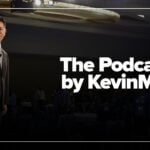I am a first-year medical student in South Korea. I wrote this essay to share what it feels like to enter a system that demands so much and still receives so little understanding in return. I haven’t even worn a white coat yet, but I already feel the weight of it.
In South Korea, becoming a doctor requires six years of undergraduate medical education, followed by exhausting years of internship and residency. That’s at least eleven years of training, often with little sleep, long shifts, and mental and physical burnout.
And yet, when the public looks at us, they don’t see the years. They don’t see the exhaustion. They see only two things: privilege and money.
But most of us are not wealthy. Most of us are not the celebrity doctors you see on television or the private practice owners driving luxury cars. We are students and trainees who are expected to save lives — even while being paid less than minimum wage.
This is the paradox of Korean medicine: The more we give, the less we are allowed to ask for in return.
I’ve heard people say, “Why are doctors complaining? Don’t they make a fortune anyway?” What they don’t see is the thirty-six-hour shifts in emergency rooms. They don’t see residents collapsing in stairwells, sleeping between patients. They don’t see the fear of making mistakes, of being blamed, of being sued — not because we’re careless, but because we’re exhausted and unsupported.
We don’t want applause. We’re not asking for medals. We just want to be acknowledged as human beings.
The current public discourse treats doctors like villains. We are framed as an elite class resisting reform — selfish, greedy, entitled. But many of us chose this path because we believed in healing. And now, we find ourselves silenced, not by law, but by narrative.
We can’t strike without being told we’re holding patients hostage. We can’t speak out without being labeled arrogant. We can’t cry without being told we’re too sensitive for the job.
I entered medicine because I wanted to help people. But what I’m learning is that doctors are not just healers here — we are targets for political narratives and emotional scapegoats for a broken system.
I’ve seen fellow students cry, not just from the workload, but from the realization that society doesn’t want to understand us — that it prefers the myth of the rich, uncaring doctor to the truth of the overworked, underpaid trainee.
What hurts more is that this narrative didn’t appear out of nowhere. It was crafted — by those in power, by those who found it easier to blame us than to fix the system.
Is it wrong to earn a decent living after more than a decade of sacrifice and study? Is it immoral to want respect after giving up our twenties, our families, our health?
Most “pay doctors” — full-fledged specialists working under hospitals — make between $80,000 and $160,000 annually. That’s after spending more than eleven years in training. For comparison, a lawyer, engineer, or even a tech employee with just four years of education may earn more — with less risk, less sacrifice, and far more societal appreciation.
But when we speak up, we are told to be quiet. Told we should be grateful just to be in this profession.
Gratitude cannot be demanded. Respect cannot be optional.
We do not expect the world to change overnight. But we do ask — plead — that society at least see us for who we really are. Not villains. Not elites. Just young people who want to heal, and not be broken in the process.
Before I ever treat a patient, I want to be honest about what it means to become a doctor in my country. Because if we’re not allowed to speak now, we may never be able to speak at all.
The author is an anonymous medical student in South Korea.



















![Waking up at 4 a.m. is not required for success [PODCAST]](https://kevinmd.com/wp-content/uploads/Design-3-190x100.jpg)


![Primary care offers unexpected financial and emotional wealth [PODCAST]](https://kevinmd.com/wp-content/uploads/Design-2-190x100.jpg)
